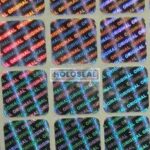Counterfeiting is the unauthorized production and sale of goods that infringe on the intellectual property rights of others. It is a global problem that costs companies billions of dollars each year.
The effects of counterfeiting on companies can be significant, including:
Loss of sales: Counterfeit products are often sold at lower prices than genuine products, which can lead to a loss of sales for legitimate companies.
Damage to brand reputation: When consumers purchase counterfeit products, they may be disappointed with the quality of the product or the experience of buying it. This can damage the brand reputation of the legitimate company.
Increased costs: Companies may need to spend more money on marketing and advertising to offset the loss of sales due to counterfeiting. They may also need to invest in new technologies to help them track and prevent counterfeiting.
Legal liability: Companies may be held liable for damages if consumers are injured or killed by counterfeit products.
Loss of jobs: Counterfeiting can lead to job losses in the legitimate manufacturing sector.
In addition to these direct effects, counterfeiting can also have a number of indirect effects on companies, such as:
Reduced investment: Companies may be less likely to invest in new products or markets if they are concerned about counterfeiting.
Increased prices: Companies may need to increase prices for their genuine products to offset the loss of sales due to counterfeiting.
Damage to the economy: Counterfeiting can damage the economy by reducing tax revenue and by creating an unfair playing field for legitimate businesses.
The effects of counterfeiting on companies can be significant, and it is important for companies to take steps to protect themselves from counterfeiting. These steps may include:
Registering their intellectual property rights: Companies should register their intellectual property rights, such as trademarks and patents, with the appropriate authorities. This will help them to protect their brands and products from counterfeiting.
Using anti-counterfeiting technologies: There are a number of anti-counterfeiting technologies available that can help companies to track and prevent counterfeiting. These technologies include holograms, RFID tags, and watermarks.
Educating consumers: Companies should educate consumers about the dangers of counterfeit products and how to identify them. This can help to reduce the demand for counterfeit products.
Working with law enforcement: Companies should work with law enforcement to investigate and prosecute counterfeiters. This will help to deter counterfeiting and protect legitimate businesses.
Counterfeiting is a serious problem that can have a significant impact on companies. By taking steps to protect themselves from counterfeiting, companies can help to reduce the risks and protect their businesses.
Holoseal can help you protect your brand and products from counterfeiting with holographic solutions such as hologram labels, hologram strips, and packaging films. These solutions create a unique visual effect that is difficult to replicate, making it easy for consumers to identify genuine products.
If you are interested in learning more about Holoseal or our products, please contact us. We would be happy to discuss your specific needs and how we can help you protect your brand.




